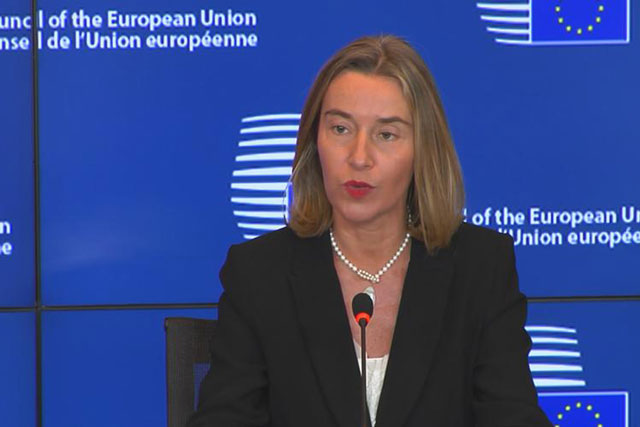
EU member countries are expected to sign off on the new "Asia connectivity strategy" - which aims to improve transport, digital and energy links while promoting environmental and labour standards - in time for a major summit of European and Asian leaders next month.
Brussels insists the scheme is not a response to any other player, but its launch comes as the sheen fades on Beijing's "new Silk Road" initiative, which envisions railways, roads and ports being built across the globe using billions of dollars in Chinese loans.
Federica Mogherini, the EU's diplomatic chief, said talks have been going on for several months with a number of Asian countries that were "interested in looking at the European way".
China's 'Silk Road' project runs into debt jam
"Our initiative will aim at creating jobs and economic growth and benefits for the local communities," she told reporters.
"I would not say if this is different from other's proposal but this is our proposal."
The new strategy comes after European Commission President Jean-Claude Juncker called for a more muscular EU foreign policy to match the bloc's economic clout, taking on not just US President Donald Trump's "America First" approach but also China's energetic involvement in Africa and Asia.
President Xi Jinping said earlier this month that China's trade with Belt and Road countries had exceeded $5 trillion, with outward direct investment surpassing $60 billion.
But some countries are beginning to question whether the strings attached to the money make it more of a burden than a benefit.

















COMMENTS
Comments are moderated and generally will be posted if they are on-topic and not abusive.
For more information, please see our Comments FAQ